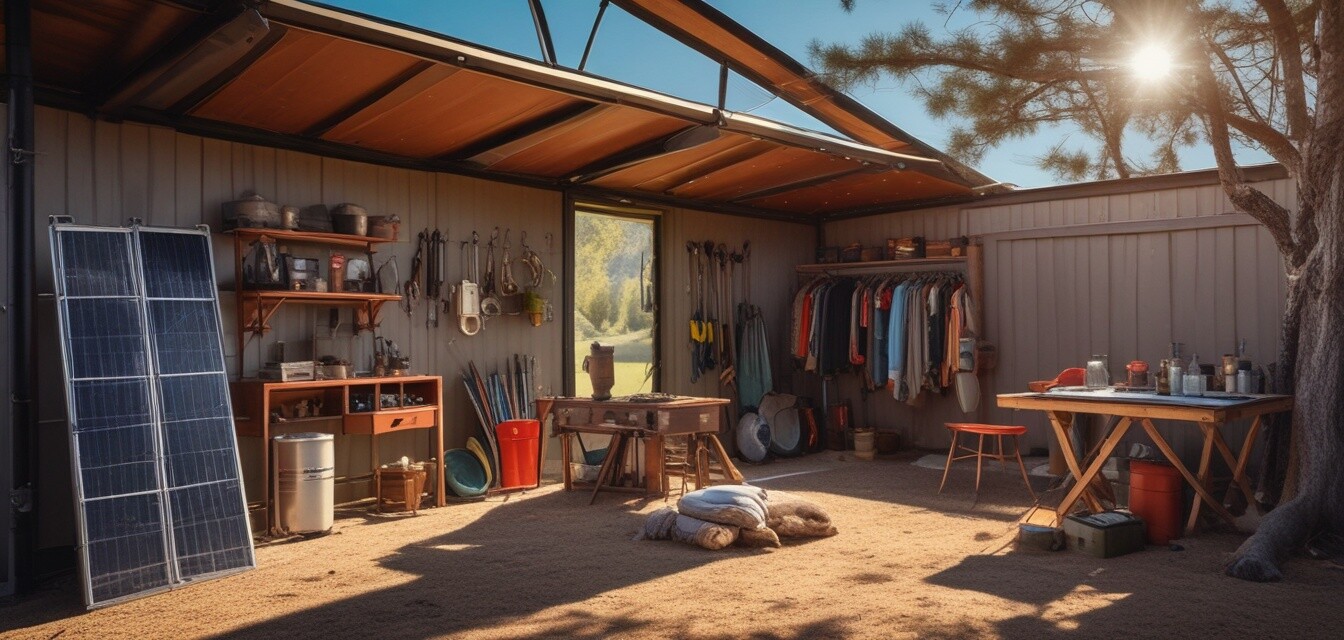
Best Practices for Storing Solar Gear
Key Takeaways
- Always clean your solar gear before storage to prevent dirt and debris buildup.
- Store solar panels in a cool, dry place away from direct sunlight.
- Protect batteries from extreme temperatures and humidity.
- Utilize protective bags or cases to avoid physical damage to your gear.
- Regularly inspect your stored gear to ensure it remains in good condition.
Storing solar-powered gear properly during off-seasons is essential for maintaining performance and longevity. Whether you’re a casual camper or a devoted outdoor adventurer, you'll want to ensure that your solar panels, batteries, and other equipment remain in excellent shape while not in use. This guide shares essential tips for storing solar-powered gear effectively.
Why Proper Storage Matters
Solar power equipment, like any kind of technology, requires proper care. Failing to store your gear correctly can lead to decreased performance or even permanent damage. This is particularly important for items like solar panels and batteries, which can be sensitive to environmental conditions.
Impact of Improper Storage
| Item | Effect of Improper Storage |
|---|---|
| Solar Panels | Can lose efficiency, accumulate dust and scratches. |
| Batteries | May leak, swell, or become unusable due to temperature extremes. |
| Cables and Accessories | Can become tangled, damaged, or suffer from corrosion. |
Essential Tips for Storing Your Solar Gear
1. Clean Your Gear Before Storing
Always clean your solar gear to remove any dirt or debris that may have accumulated. This is especially crucial for solar panels, as any obstructions can diminish their performance.
2. Choose the Right Environment
Store your solar equipment in a cool, dry place. Excessive heat or dampness can lead to various issues:
- Heat can damage photoelectric cells in solar panels.
- Humidity can cause battery corrosion and mold growth.
3. Protect Your Batteries
Properly storing batteries is particularly crucial. Follow these guidelines:
- Remove the batteries from your equipment to avoid leakage.
- Keep them in a temperature-controlled environment.
- Check the battery charge every few months and recharge if necessary.
4. Use Protective Cases
Invest in protective bags or cases designed for solar products:
- These can help prevent scratches, dents, and other physical damage.
- Ensure your gear remains organized and easy to access for future use.
5. Regularly Inspect Your Gear
Even when not in use, it’s wise to check your stored solar equipment often:
- Inspect for signs of wear or damage.
- Make sure protective cases remain intact.
- Test batteries periodically to ensure they hold a charge.
Conclusion
By following these best practices for storing your solar gear, you can ensure it remains ready for your next adventure and maintains its effectiveness over time. Regular inspection and proper care are vital steps that will extend the life of your solar-powered equipment.
Tips for Beginners
- Always read the manufacturer’s instructions for your specific gear.
- Store equipment in its original packaging if possible for extra protection.
- Consider setting reminders to check on your gear occasionally.
Related Resources
For further information on enhancing your outdoor adventures with solar power, you can explore: